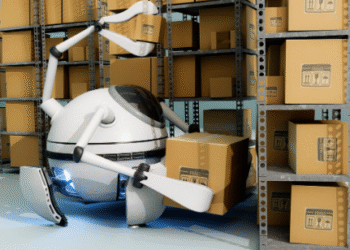The traditional taxi industry has been the backbone of urban transportation for decades, but it now faces several significant challenges. These hurdles impact the efficiency, competitiveness, and overall viability of taxi services. Awareness of these challenges is crucial for businesses seeking effective taxi booking app development services to modernize and stay competitive.
Competition from Ride-Sharing Services
Traditional taxi companies now compete intensely with ride-sharing giants like Uber and Lyft. These platforms offer consumers lower prices, seamless app-based booking, and quicker services. This competition has led to a sharp decrease in market share and passenger numbers for traditional taxis, creating pressure to innovate or lose relevance.
Regulatory and Licensing Constraints
Traditional taxis often operate under stricter regulations than ride-hailing services. Licensing requirements, fare limits, and operational rules can hamper flexibility and responsiveness. This regulatory complexity adds to the operational costs and slows down adaptation to market trends.
Driver Shortages and Retention Issues
Finding qualified drivers who meet safety and service standards is a persistent challenge. Moreover, ride-hailing services provide more flexible working conditions, making it harder for traditional taxis to attract and retain drivers, causing shortages that affect service availability.
Slow Adoption of Technology
Many traditional taxi services lag in adopting new technologies such as mobile booking apps, GPS tracking, and digital payment solutions. This delay reduces their appeal to tech-savvy customers who prefer the convenience and efficiency offered by modern taxi booking apps.
Customer Trust and Safety Concerns
Issues like inconsistent service quality, driver misconduct, refusal to pick passengers, and safety incidents damage customer trust. Unlike ride-hailing apps which use ratings and complaint mechanisms to monitor driver behavior actively, traditional taxis face challenges maintaining consistent service quality.
Environmental and Operational Costs
The traditional taxi fleet is often less environmentally friendly and incurs heavy costs in vehicle maintenance, fuel, and insurance. There is mounting pressure to introduce greener options like electric vehicles, but updating fleets demands substantial investment which many operators find prohibitive.
Changing Consumer Expectations
Today’s passengers expect on-demand, personalized, and contactless services. Traditional taxis sometimes struggle to meet these evolving preferences, affecting their ability to compete effectively with more adaptive ride-hailing platforms.
Inefficiencies in Dispatch and Pricing
Traditional taxis commonly rely on outdated dispatch systems and fixed pricing models. This often leads to long wait times for drivers and passengers, unpredictable fares, and inefficiencies that frustrate customers. Ride-sharing services use dynamic pricing and smart dispatch algorithms to optimize utilization and satisfaction.
For traditional taxi businesses aiming to thrive, partnering with experts in taxi booking app development services is vital. Leveraging technology, AI, and user-friendly app platforms can transform service delivery, improve market competitiveness, and meet modern consumers’ expectations effectively.
By embracing modern taxi apps, the transportation industry is overcoming its biggest challenges, from reducing wait times to optimizing routes and enhancing rider safety.






